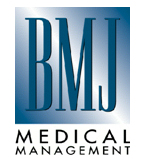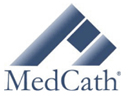Summary of Performance
This Summary of Performance represents distressed control mandates in which the Fund Partners sourced the opportunity and orchestrated the capital and operating restructurings, as well as the value realizing exit transactions. The oversight was affected through the Fund Partners’ fiduciary or exclusive advisory roles with delegated authority and is comprised of the complete track record universe with validated attribution to the Fund Partners for managing the full continuum of responsibilities from sourcing through exit. The selection of the mandates listed in the Summary of Performance was not based on performance criteria. Furthermore, prior performance should not be used to predict future results.
Click logos for details
 A member of the SOLIC team served as a Stakeholder Representative with delegated authority to oversee operating and capital restructuring and exit transaction of BLI Holdings, Inc. (BLI). The Company was suffering from customer defections due to quality issues and missed deliveries, a bloated cost structure from dual (east/west) operating centers and a liquidity crisis with defaults under its credit facilities.
A member of the SOLIC team served as a Stakeholder Representative with delegated authority to oversee operating and capital restructuring and exit transaction of BLI Holdings, Inc. (BLI). The Company was suffering from customer defections due to quality issues and missed deliveries, a bloated cost structure from dual (east/west) operating centers and a liquidity crisis with defaults under its credit facilities.
The SOLIC team was responsible for:
- Structuring and negotiating a comprehensive out-of-court capital restructuring, including secondary market auctioning of senior secured debt
- Right-sizing corporate cost structure and recruiting new management team
- Redesigning inventory controls and manufacturing process
- Structuring and negotiating exit transaction
The operational rehabilitation devised and executed by members of the SOLIC Team resulted in the EBITDA of BLI improving from $(4.8) million at entry to $5.5 million at exit. This improvement in EBITDA was largely responsible in driving an increase in enterprise value from $16.3 million at entry to $33.8 million at exit, representing a multiple of enterprise value at exit to enterprise value at entry of 2.1x and a Pro forma Gross IRR of 27%.
A privately held contract manufacturer with divisions in New Jersey and California that manufacture and package personal care products, including lotion, soap, hairspray, shampoo, conditioner and perfume through two subsidiaries: Medicia Corp. and Bocchi Laboratories, Inc.

Members of the SOLIC team served as the Financial Advisors to the Board of Directors, and Sell-side Financial Advisors and Stakeholder Representative to BMJ Medical Management (BMJ). In addition, a member of the SOLIC team served as President. BMJ was a failed roll-up with excessive leverage and credit facility defaults, a lack of adequate financial controls and a management unable to oversee rapidly growing business.
The SOLIC team was responsible for:
- Comprehensive in-court wind-down of operations and liquidation of assets
- Stabilizing operations to achieve orderly asset disposition
- Developing and executing optimal disposition strategies resulting in 100% senior secured lender recovery
The sum-of-the-parts strategy devised and executed by members of the SOLIC Team resulted in an increase in enterprise value from $19.6 million at entry to $46.0 million at exit, representing a multiple of enterprise value at exit to enterprise value at entry of 2.4x and a Pro forma Gross IRR of 245%.
Operator of ambulatory surgical centers, magnetic resonance imaging centers, physical therapy clinics, independent physician associations and musculoskeletal physician practices with revenue of $150 million formed by acquiring 31 businesses. (NASDAQ: BONS)

Members of the SOLIC team served as Financial Advisors for Senior Secured Lenders, Executive Chairman of the Board (post-reorganization), and Sell-side Financial Advisor. HQ Global suffered from overleverage, poorly integrated acquisitions with redundant business centers, a bloated cost structure and ineffective management structure.
The SOLIC team was responsible for:
- In-court capital restructuring with complete debt-to-equity conversion
- Orchestration of HQ’s operating rehabilitation plan, resulting in approximately $45 million annual improvement in EBITDA
- Divesting non-core assets
- Structuring and negotiating optimal exit transaction with strategic buyer
The operational rehabilitation devised and executed by members of the SOLIC Team resulted in the EBITDA of HQ Global improving from $2.4 million at entry to $47.0 million at exit. This improvement in EBITDA was largely responsible in driving an increase in enterprise value from $73.3 million at entry to $314.8 million at exit, representing a multiple of enterprise value at exit to enterprise value at entry of 4.3x and a Pro forma Gross IRR of 69%.
Privately held, largest provider of serviced executive office suites in the U.S., managing more than 10 million square feet of Class A commercial real estate and providing a variety of business services through its 375 locations in the U.S. and across the world.

A member of the SOLIC team served as Board member, Chairman of Strategic Assessment Committee, Exclusive Sell-side Financial Advisor (stepped down from board to serve in this capacity). MedCath Corp.’s earnings were restricted from legislative proposals which limited the Company’s business model due to ownership of physician-owned hospitals. The Board of Directors decided that the existing business model was not sustainable and subsequently convened a Strategic Assessment Committee to evaluate alternatives.
The SOLIC team was responsible for:
- Leading the evaluation of strategic alternatives
- Recommending sale of sum-of-the-parts assets in order to maximize value to shareholders
- Leading comprehensive restructuring of existing senior secured credit agreement to allow for orderly sale of Company assets
- Sale of 13 hospitals and related entities creating significant incremental value to shareholders
The sum-of-the-parts strategy devised and executed by members of the SOLIC Team resulted in an increase in enterprise value from $148.8 million at entry to $279.0 million at exit, representing a multiple of enterprise value at exit to enterprise value at entry of 1.9x and a Pro forma Gross IRR of 35%.
Engaged in the ownership and operation of hospitals in partnership with physicians in the U.S. The Company focused primarily on providing acuity services, including the diagnosis and treatment of cardiovascular disease. In addition, the Company offered consulting and management services to cardiologists and cardiovascular surgeons.

Members of the SOLIC team served as Financial Advisor for Senior Secured Lenders, Executive Chairman of the Board (post-reorganization) and Exclusive Sell-side Financial Advisor. Mediq suffered a default under its credit facilities, a liquidity crisis, reporting irregularities with weak controls and cash management, and poorly integrated acquisitions, bloated cost structure, and an aging fleet.
The SOLIC team was responsible for:
- Comprehensive in-court capital restructuring with partial debt-to-equity conversion
- Orchestrating operating rehabilitation plan with 20% EBITDA improvement
- Right-sizing corporate cost structure for savings of $13.2 million
- Divesting non-core assets and remediating underperforming branches
- Structuring and negotiating optimal exit transaction with preemptive strategic buyer
The operational rehabilitation devised and executed by members of the SOLIC Team resulted in the EBITDA of Mediq improving from $44.1 million at entry to $53.0 million at exit. This improvement in EBITDA was largely responsible in driving an increase in enterprise value from $189.1 million at entry to $338.0 million at exit, representing a multiple of enterprise value at exit to enterprise value at entry of 1.8x and a Pro forma Gross IRR of 16%.
The nation’s leading provider of movable medical equipment on a daily rental basis to hospitals, long-term acute care hospitals, and nursing homes, as well as a distributor for alternate site medical supplies and equipment.

Members of the SOLIC team served as Executive Management and Sell-side Financial Advisors. Primecare International was an integrated delivery system with predominantly prepaid managed care. The Company was a rapid roll-up in preparation for IPO and was under monetary default with less than six months from origination of debt, and experiencing negative cash flow of $2 million per month.
The SOLIC team was responsible for:
- Negotiating emergency bridge loan
- Consummating a strategic provider agreement
- Selling or closing non-core/underperforming assets
- Improving EBITDA performance by $17.5 million
- Negotiating the Company sale for an enterprise value of $150.2 million
The operational rehabilitation devised and executed by members of the SOLIC Team resulted in the EBITDA of PrimeCare improving from $5.1 million at entry to $22.6 million at exit. This improvement in EBITDA was largely responsible in driving an increase in enterprise value from $34.2 million at entry to $150.2 million at exit, representing a multiple of enterprise value at exit to enterprise value at entry of 4.4x and a Pro forma Gross IRR of 115%.
A privately held health care delivery system operating throughout the U.S. that owned, operated and/or managed hospitals, physician practices, diagnostic imaging centers, independent physician associations, and durable medical equipment companies.

Members of the SOLIC team served as Restructuring Advisor, Stakeholder Representative and Sell-side Financial Advisor. Sarcom suffered a dramatic decline in revenue after Y2K and post 9-11. The Company defaulted under its senior credit facilities due to a liquidity crisis, a bloated cost structure, unprofitable segments and high-cost capital.
The SOLIC team was responsible for:
- Comprehensive out-of-court capital restructuring, with debt-to-equity conversion
- Recruiting new management team
- Implementing operating rehabilitation plan which resulted in EBITDA improvement of $4.4 million
- Eliminating significant corporate overhead and sold unprofitable, non-core assets
- Structuring and negotiating exit transaction for $17 million
The operational rehabilitation devised and executed by members of the SOLIC Team resulted in the EBITDA of Sarcom improving from $(2.2) million at entry to $2.2 million at exit. This improvement in EBITDA was largely responsible in driving an increase in enterprise value from $10.0 million at entry to $17.0 million at exit, representing a multiple of enterprise value at exit to enterprise value at entry of 1.7x and a Pro forma Gross IRR of 43%.
Regional value-added reseller of computer equipment and provider of IT consulting services, including help desk, break-fix, network development and management, and other value-added services to Midwest corporate customers.

Members of the SOLIC team provided oversight to all fiduciary officer roles including CEO, CRO, CFO, CIO and served as Exclusive Financial Advisor and Sell-side Financial Advisor. Sumner Regional Health Systems, Inc. (Sumner) suffered from excessive capital spending and management overhead in face of significant leverage and likely inability to continue to service debt obligations, as well as declining patient revenues and reimbursement environment.
The SOLIC team was responsible for:
- Restructuring existing bondholder agreements to waive covenant defaults
- Leading performance and financial improvement initiatives resulting in significant EBITDA improving from $(12.3) million at entry to $14.8 million at exit
- Rationalizing underperforming service lines
- Disposing of non-core assets
- Streamlining system-wide governance and organizational design
- Leading Chapter 11 §363 sale
The operational rehabilitation devised and executed by members of the SOLIC Team resulted in the EBITDA of Sumner improving from $(12.3) million at entry to $14.8 million at exit. This improvement in EBITDA was largely responsible in driving an increase in enterprise value from $62.5 million at entry to $156.8 million at exit, representing a multiple of enterprise value at exit to enterprise value at entry of 2.5x and a Pro forma Gross IRR of 115%.
Operated as a private, not-for-profit healthcare system servicing an eleven county region in north-central Tennessee. Served as predominant healthcare provider in the region providing a wide array of general and specialized healthcare services in both inpatient and outpatient settings through four community-based acute care hospitals.

Members of the SOLIC team served as Restructuring Advisor, Executive Chairman of the Board (post-capital restructuring), Operation Support/Oversight and Sell-side Financial Advisor. TLC Healthcare Services, Inc. (TLC) suffered a significant decline in revenues, poor integration of acquisitions, a violation of its loan covenants, a decline in episodes, a bloated cost structure and a lack of urgency and accountability.
The SOLIC team was responsible for:
- Renegotiating credit facility
- Closing unprofitable branches
- Instituting organizational redesign and cost structure improvements
- Implementing accountability metrics and realigned sales organization
- Improving EBITDA performance by 40%
- Structuring and negotiating Company sale for $395 million
The operational rehabilitation devised and executed by members of the SOLIC Team resulted in the EBITDA of TLC improving from $24.3 million at entry to $34.9 million at exit. This improvement in EBITDA was largely responsible in driving an increase in enterprise value from $224.0 million at entry to $395.0 million at exit, representing a multiple of enterprise value at exit to enterprise value at entry of 1.8x and a Pro forma Gross IRR of 68%.
Largest privately held independent home nursing company in the U.S., serving more than 43,000 patients annually, through an interdisciplinary team of caregivers led by nurses and therapists in more than 92 locations nationwide.




